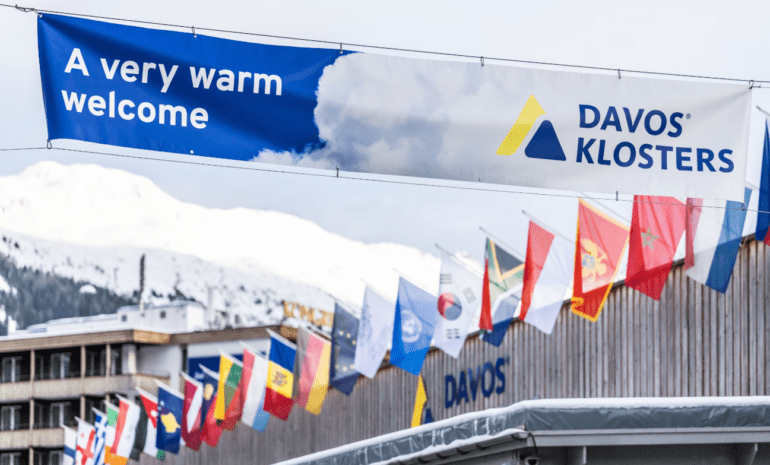TL;DR:
- Annual World Economic Forum gathering in Davos, Switzerland with 2,800 attendees.
- Broader agenda with a focus on climate change, conflict, and AI.
- Prominent leaders, including Israeli President Herzog and Ukrainian President Zelenskyy, to participate.
- Emphasis on high-minded ambitions, innovation, peace-making, and healthcare advancements.
- Criticized for wealth inequality but valued for face-to-face discussions in pandemic times.
- AI takes center stage with 30 dedicated sessions, featuring OpenAI and Microsoft.
- AI discussions cover education, transparency, ethics, and impact on creativity.
- Warning about AI-generated misinformation as a short-term global threat.
Main AI News:
In the Alpine enclave of Davos, Switzerland, an annual gathering of global leaders, the World Economic Forum, is set to kick off, drawing over 2,800 attendees, including heads of state, academics, artists, and international organization leaders. This elite meeting has always been a platform for discussing pressing global issues, but this year’s agenda has expanded to include a broader array of priorities.
With the Earth heating up and conflicts intensifying in the Middle East, the world is facing an increasingly complex landscape. The global economy is showing signs of strain, and Ukraine’s defense against Russia remains a concern. Amidst all this, the rise of artificial intelligence looms large, promising both opportunities and challenges that could reshape our lives.
This year’s Davos agenda is a reflection of these shifting global dynamics. High-minded ambitions, such as fostering business innovation, pursuing peace-making efforts, enhancing security cooperation, and advancing breakthroughs in healthcare, will take center stage. It is a rare opportunity for decision-makers from various sectors and industries to come together and collaborate.
Critics have often criticized Davos for symbolizing the stark wealth inequality in the world, dubbing it a gathering of the rich and powerful responsible for global conflicts and crises. Nevertheless, the importance of face-to-face discussions on global issues cannot be underestimated, particularly in these times when the COVID-19 pandemic has highlighted the value of in-person interactions.
Artificial intelligence, a topic that has gained significant prominence in recent years, will have approximately 30 dedicated sessions at Davos. OpenAI’s ChatGPT and other AI innovations have demonstrated the potential of this technology, attracting attention from leaders like Sam Altman of OpenAI and executives from Microsoft, who played a pivotal role in supporting its growth.
These AI discussions will cover a wide spectrum, including its role in education, the need for transparency, ethical considerations, and its impact on creativity. The Davos Promenade is awash with advertisements and displays showcasing the latest advancements in this field.
Forum organizers have sounded a cautionary note, highlighting the immediate threat posed by AI-generated misinformation and synthetic content. In an era where the power of technology is ever-expanding, addressing this challenge becomes paramount to maintaining a stable and informed global landscape.
Conclusion:
The Davos 2024 meeting reflects a dynamic global landscape, addressing critical issues such as climate change, conflicts, and the rise of artificial intelligence. As leaders converge to collaborate on high-minded ambitions, including innovation and healthcare advancements, the event serves as a testament to the importance of in-person discussions in an increasingly digital world. The significant focus on AI underscores its growing influence, with implications for business, innovation, and society at large. However, the warning about AI-generated misinformation highlights the need for responsible AI development and its impact on global stability.

